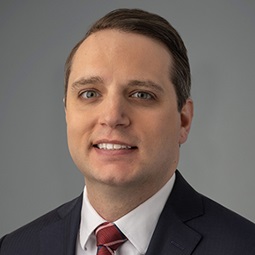Contributed by Yvanna Custodio
In a decision resolving an interlocutory bankruptcy appeal, the United States District Court for the Southern District of New York concluded that certain prepetition federal claims based on the False Claims Act asserted against the reorganized debtor, a military aircraft manufacturer, might not be dischargeable despite the debtor’s confirmed plan. In United States ex rel. Minge v. Hawker Beechcraft Corporation, the district court reversed the bankruptcy court and ruled that the exceptions to the corporate discharge provisions under section 1141 of the Bankruptcy Code did not incorporate the procedural requirements under section 523 and Rule 4007(c) of the Federal Rules of Bankruptcy Procedure, which mandated the commencement of an adversary proceeding to determine dischargeability prior to a set deadline. The district court concluded that because the plaintiffs alleged the debtor’s fraud in government contracting, the FCA claims could fall under the provision of the Bankruptcy Code that excepts from discharge those debts that were obtained by “false pretenses, a false representation, or actual fraud . . . .”
The FCA Claims
In 2007, two former employees of the debtor’s subcontractors filed a qui tam suit under the False Claims Act in the United States District Court for the District of Kansas against the subcontractors and the debtor, alleging the “defendants made misrepresentations in their certifications to the government regarding certain components manufactured by [the subcontractors] and incorporated into military aircraft sold to the government.” The plaintiffs sought more than $6 billion in damages and penalties, in addition to attorneys’ fees and costs. In 2012, the debtor and its affiliates sought chapter 11 protection. As part of the bankruptcy process, the court-appointed claims agent mailed a notice informing recipients that if they sought to avoid the discharge of a debt, they were required to file a complaint by a deadline (notice of which would be sent at a later time). Three months after the section 341 creditors’ meeting, the plaintiffs commenced their adversary proceeding in the bankruptcy court and sought a determination of the dischargeability of the FCA claims.
The Bankruptcy Court Opinion
Less than a year later, the bankruptcy court dismissed the adversary complaint as to the FCA claims for damages and penalties, but did not dismiss the potential claims for attorneys’ fees and expenses. In its decision, the bankruptcy court analyzed section 1141(d)(6)(A) of the Bankruptcy Code, categorizing subparagraph (A) into two independent clauses that excepted certain types of debt from discharge: The first clause excepts any debt “of a kind specified in paragraph (2)(A) or (2)(B) of section 523(a) [which excludes from discharge any debt obtained by, among other things, false representation or actual fraud] that is owed to a domestic governmental unit,” and the second excepts any debt “owed to a person as the result of an action filed under subchapter III of chapter 37 of title 31 or any similar State statute[.]”
In dismissing the complaint in part, the bankruptcy court explained that, generally, two types of exceptions to discharge exist: “(1) those that are self-executing and (2) those that require the creditor to seek a determination of dischargeability in the bankruptcy court by a fixed deadline, failing which the exception does not apply and the debt is discharged.” If the exception to discharge is not self-executing, the creditor must, following section 523(c)(1) and Bankruptcy Rule 4007(c), file a complaint to determine dischargeability within the 60 days after the first meeting of creditors under section 341 of the Bankruptcy Code. As to the first clause, the bankruptcy court found it to be non-self-executing, and held that the FCA claims for damages and penalties were dischargeable because they were time-barred (having been filed more than 60 days from the date of the first creditors’ meeting). As to the second clause, the bankruptcy court found it to be self-executing, and held that the FCA claims for damages and penalties did not qualify for the discharge exception because a qui tam claim under the FCA is not a debt “owed to a person,” but, rather, is one owed to the government.
The District Court Opinion
While parsing through the language of section 1141(d)(6)(A), the district court agreed that the two clauses are independent, but disagreed with the bankruptcy court’s ruling that the procedural requirements of section 523(c)(1) and Bankruptcy Rule 4007(c) applied to the first clause. Rather, the district court found that both clauses were self-executing.
In reaching its decision, the district court first adopted a plain-language reading of section 1141(d)(6), noting that the subparagraph does not contain or incorporate by reference any procedural requirements. Second, the district court noted that the language of section 523 itself demonstrates that it applies only to individual debtors (and not to corporate debtors). In addition, the district court rejected as inapposite bankruptcy cases commenced under chapters 12 and 13 of the Bankruptcy Code and upon which the bankruptcy court relied as authority for applying section 523(c)(1) to a dischargeability determination under section 1141(d)(6). The district court also observed, citing a United States Supreme Court decision, that the private plaintiffs, as qui tam relators, “have standing to assert FCA claims in the federal courts based on the government’s injury.” Finally, the court noted that it did not need to determine whether the FCA claims were debts “owed to a person,” given its ruling that the FCA claims might be nondischargeable pursuant to the first clause of section 1141(d)(6)(A).
Given the interlocutory nature of the appeal, the district court remanded the case to the bankruptcy court for further proceedings and left for the determination of the bankruptcy court the issue whether the FCA claims fell under paragraph (2)(A) of section 523(a).
Conclusion
Bankruptcy attorneys often recall only the general rule that corporate debts are discharged upon plan confirmation. The district court decision in Hawker Beechcraft, however, serves as a reminder that section 1141(d)(6) of the Bankruptcy Code does exist, and, as a result, not all prepetition claims against a chapter 11 debtor are dischargeable under a chapter 11 plan.
Disclaimer: Weil represents the debtor in a non-bankruptcy related matter.
Printed from
Weil Restructuring Blog

|
|
|
Reminder: Not All Prepetition Claims Against Reorganizing Chapter 11 Debtor Are Dischargeable Under Chapter 11 Plan
Copyright © 2025 Weil, Gotshal & Manges LLP, All Rights Reserved. The contents of this website may contain attorney advertising under the laws of various states. Prior results do not guarantee a similar outcome. Weil, Gotshal & Manges LLP is headquartered in New York and has office locations in Boston, Brussels, Dallas, Frankfurt, Hong Kong, Houston, London, Los Angeles, Miami, Munich, New York, Paris, San Francisco, Silicon Valley and Washington, D.C.
|












